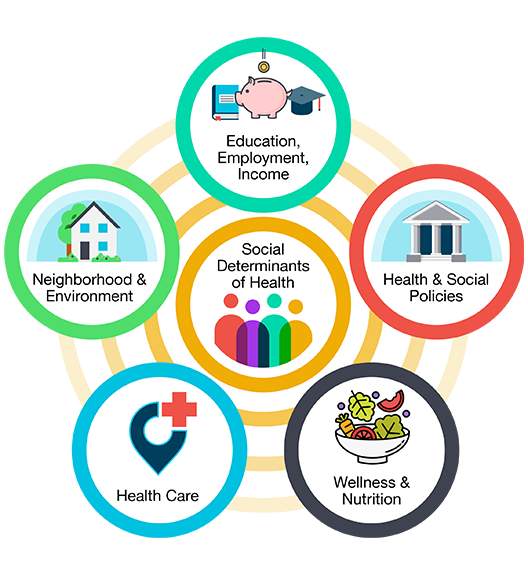Health drivers (HD) are closely linked with social and economic disadvantages and inadequate access to health care which have adversely affected groups of people who have experienced greater obstacles.
While this broad area of research delineates the process by which different groups face challenges, our ultimate goal is to improve overall health and achieve the highest level of health for all. Achieving optimal health requires valuing everyone equally with focused and ongoing societal efforts to address these avoidable social, economic and health care access challenges.
Social determinants of health (SDOH) are strong drivers of unfair and avoidable factors in health status seen within and between countries. SDOH are conditions in the environment which people are born, grow, live, learn, work, play, and age, including their health system.
These circumstances are shaped by the distribution of money, power, and resources at global, national, and local levels, which are themselves influenced by policy choices. Since these factors are avoidable, they can be addressed through a complement of scientific activities that will mediate the effects of these factors and improve overall health.

Social Determinants of Health

